The rise of AI in consumer search: What does this mean for SEO?
Explore how AI Search is reshaping digital marketing. Learn the key differences between AI and SEO, and discover strategies to optimise your content for an AI-driven world, ensuring your business stays visible and credible.
Georgia Newton
20 Sept 2024
Artificial Intelligence (AI) is here and we’re already seeing consumer behaviours rapidly change in response. Instagram and Facebook have introduced Meta AI, Canva is enabling anyone to be creative and ChatGPT is everyone’s new best friend.
Throughout this chaos, the number 1 question that I get from customers is: “How will this affect my business?”
AI is impacting every part of the customer journey, but none more so than how customers find your website.
Search Engine Optimisation, or SEO, has always played a critical role in business success. Appearing as the first result means that you’re 10x more likely to have someone click on your website, so naturally, businesses have poured a lot of money and effort into optimising how and when they appear in search engine results.
But with AI, the way customers find you is changing and as a business, you need to be ready.
Here are the facts:
Search engines designed their algorithms to promote websites and content that are popular, or directly match phrases (‘keywords’) that someone is searching for. This is mostly due to the technology that’s been available up until now - using AI requires significant coding and hardware resources which up until recently, were not feasible.
Players like Google have also monetised their top spots by offering top search spots to bidders who want to appear first (also called SEM) - something that AI Search doesn’t do (...yet).
Alternatively, AI search considers the intent behind a customer’s search when making suggestions. Instead of providing popular or paid content, AI wants to directly give you the answer to the situation you’re in, with your preferences and tastes accounted for.
The authority of your website now matters. Just like you wouldn’t take financial advice from your cousin’s friend who trades vague-sounding crypto, AI wants to ensure it is providing information from websites that have expertise and credibility in that topic.
Just like in SEO, user experience metrics like page speed, mobile-friendliness, and dwell time affect AI results as these systems also want to prioritise user-friendly content.
AI Search is being integrated into existing search engines, but we’re also witnessing new players like ChatGPT, Claude and Perplexity replace search engines altogether.
AI: Your Personal Food Critic 🧑🍳✍️
Think of AI like that one friend who knows exactly what kind of food you love—whether it’s spicy dishes, quiet atmospheres, or superb service. When you ask AI for a recommendation, it doesn’t just go with the most popular spots. Instead, it looks at how well each place matches what you like and checks if the info (like the menu and reviews) is solid. If it fits your tastes and has reliable details, then AI will suggest it.
It’s all about finding the right fit for you, not just what's trendy.
SEO: The Go-To Guidebook 🌮📕
SEO is more like a travel guidebook that shows you the restaurants with the biggest buzz. It ranks spots based on how well they advertise—things like using the right words (keywords), getting mentioned a lot (backlinks), and how many people are flocking there. Even if a place isn’t totally your style, SEO might still rank it high because it’s well-promoted and lots of people are talking about it.
It’s about visibility more than a perfect match for your tastes.
Let’s see what I’m talking about in action:
Example 1: Travel Planning
SEO: The traditional SEO experience requires me to access and read multiple websites to find information about how I can travel Asia cheaply, and subsequently make decisions.
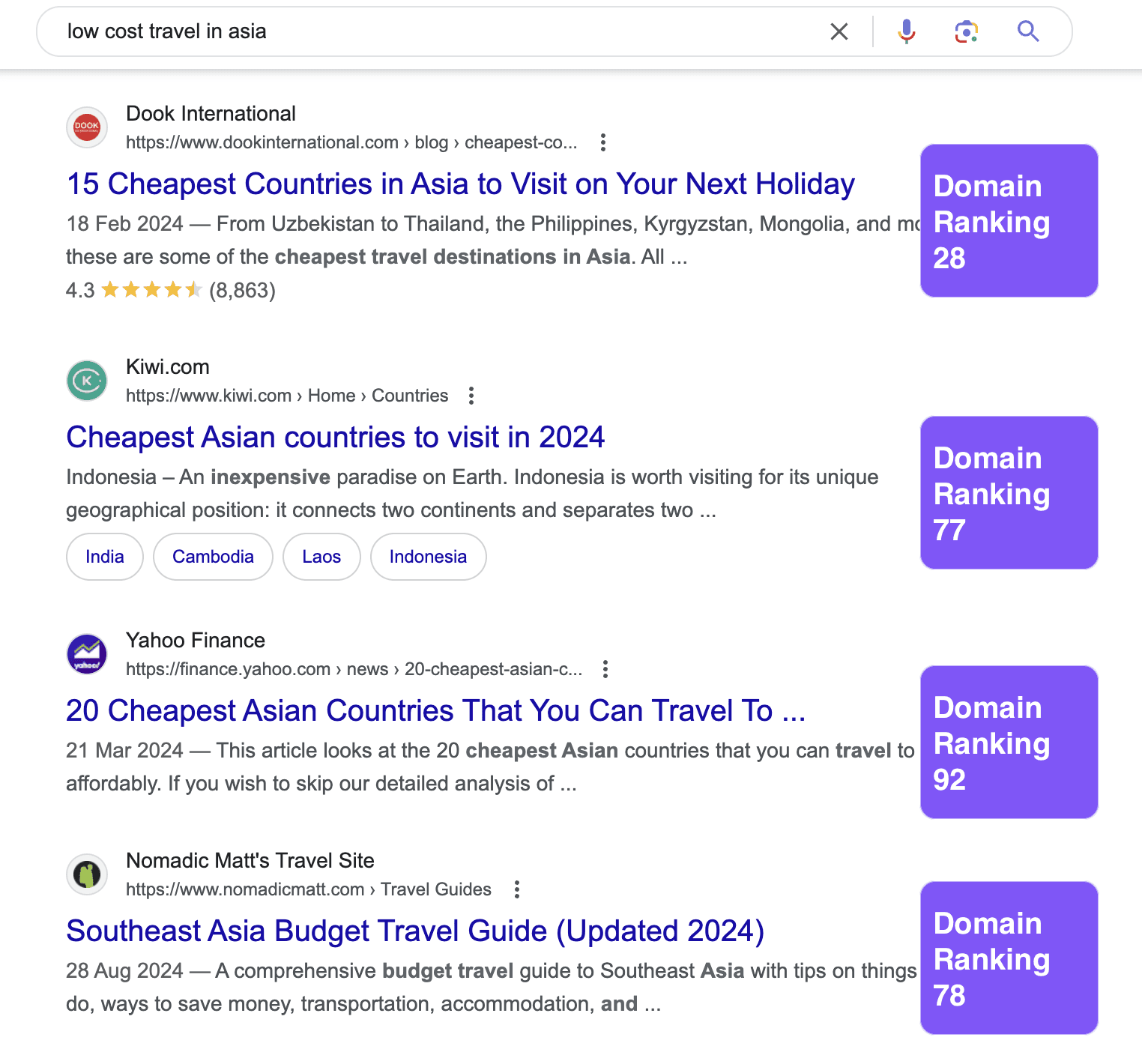
AI Search: This AI Agent (AWS) has understood my intent (wanting to keep costs low) and is providing direct suggestions and solutions to my request.
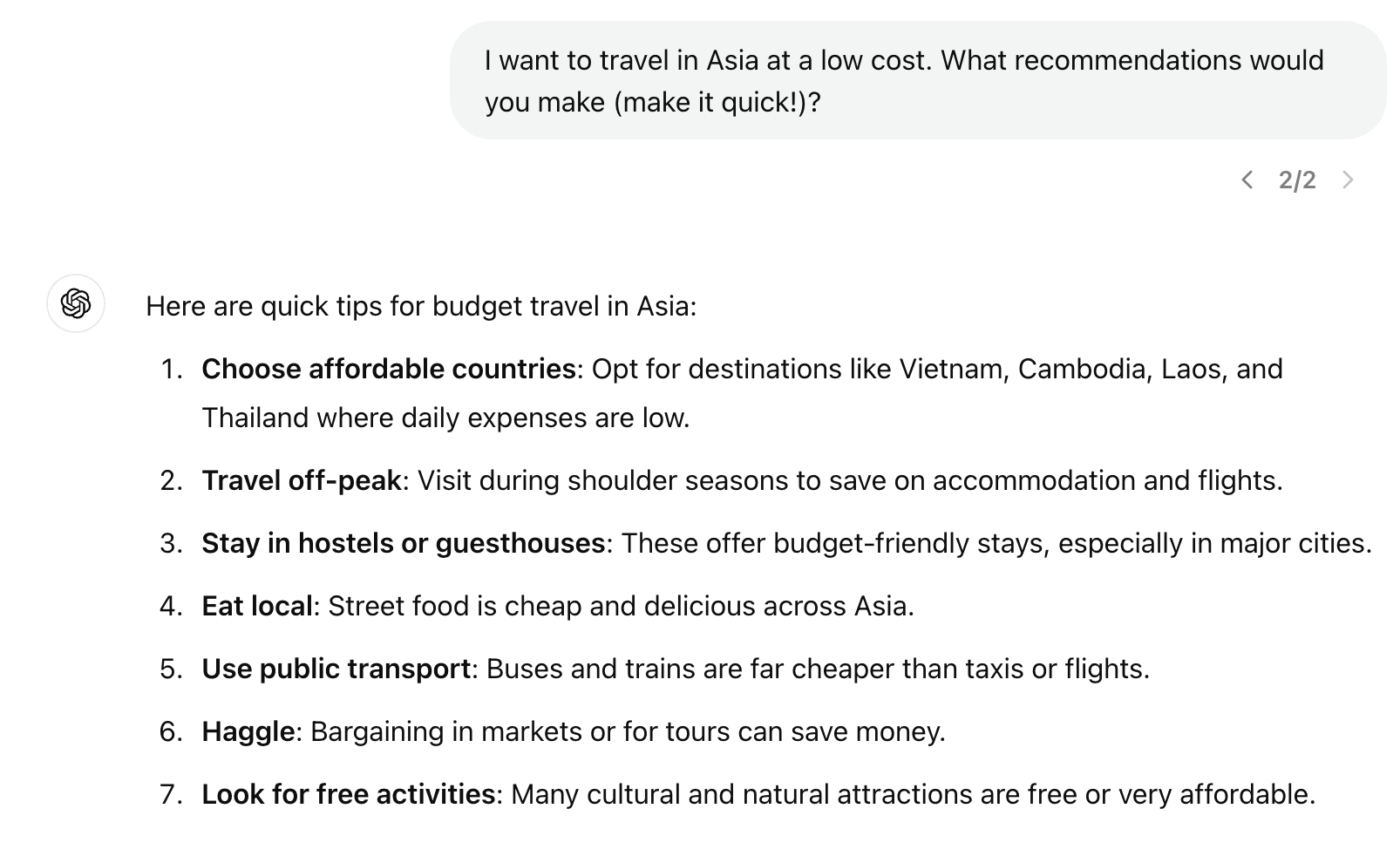
SEO: When looking for specific product or service recommendations, results that are highly optimised for SEO appear first. You’ll often see larger businesses appear first - which makes sense because their marketing budgets are a lot bigger!
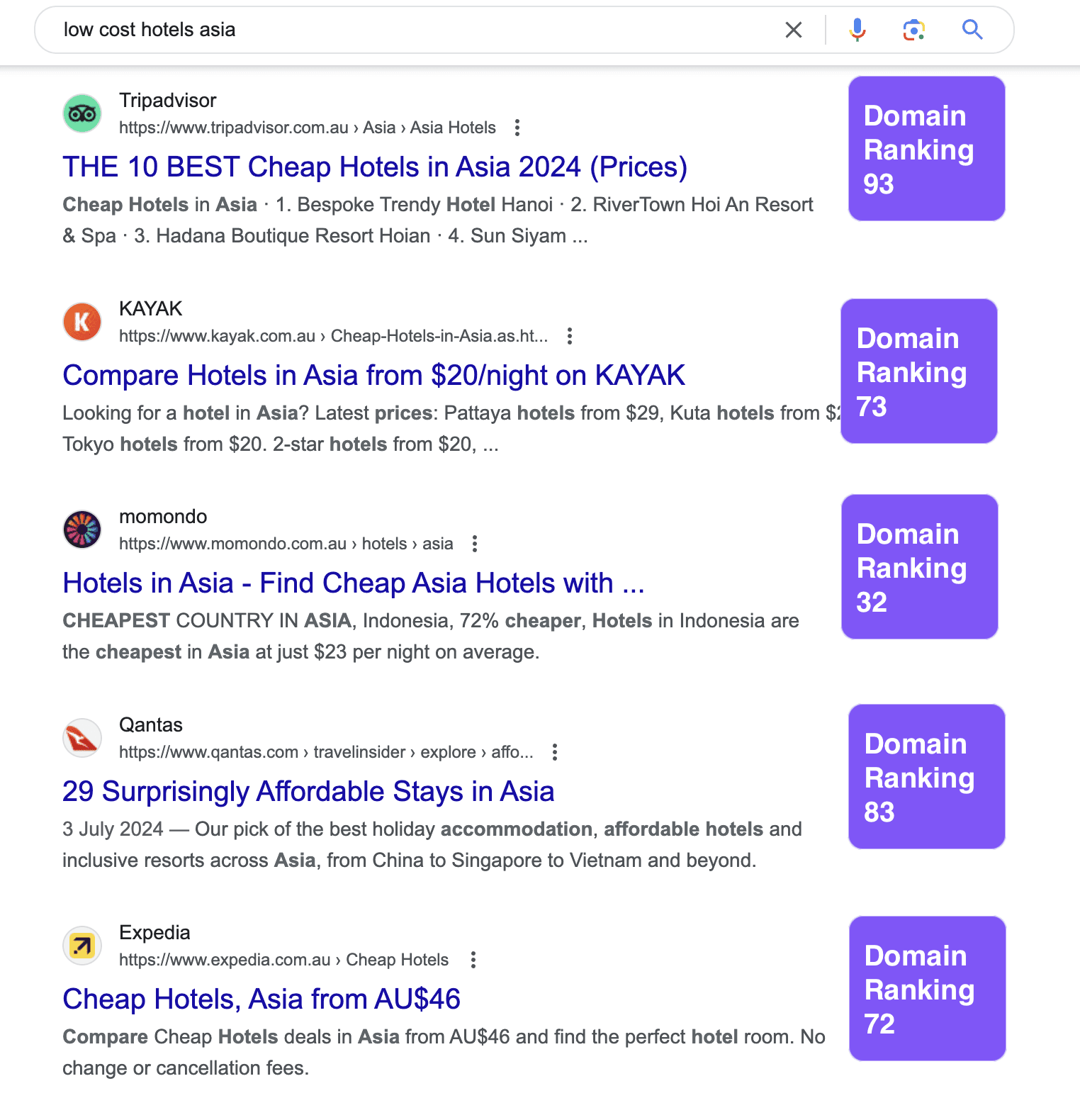
AI Search: Alternatively, ChatGPT is directly recommending options based on my explicit needs (low budget), but is also considering implied criteria - in this case, things that are commonly important for budget travellers (proximity to public transport, hotel quality, amenities, etc.)
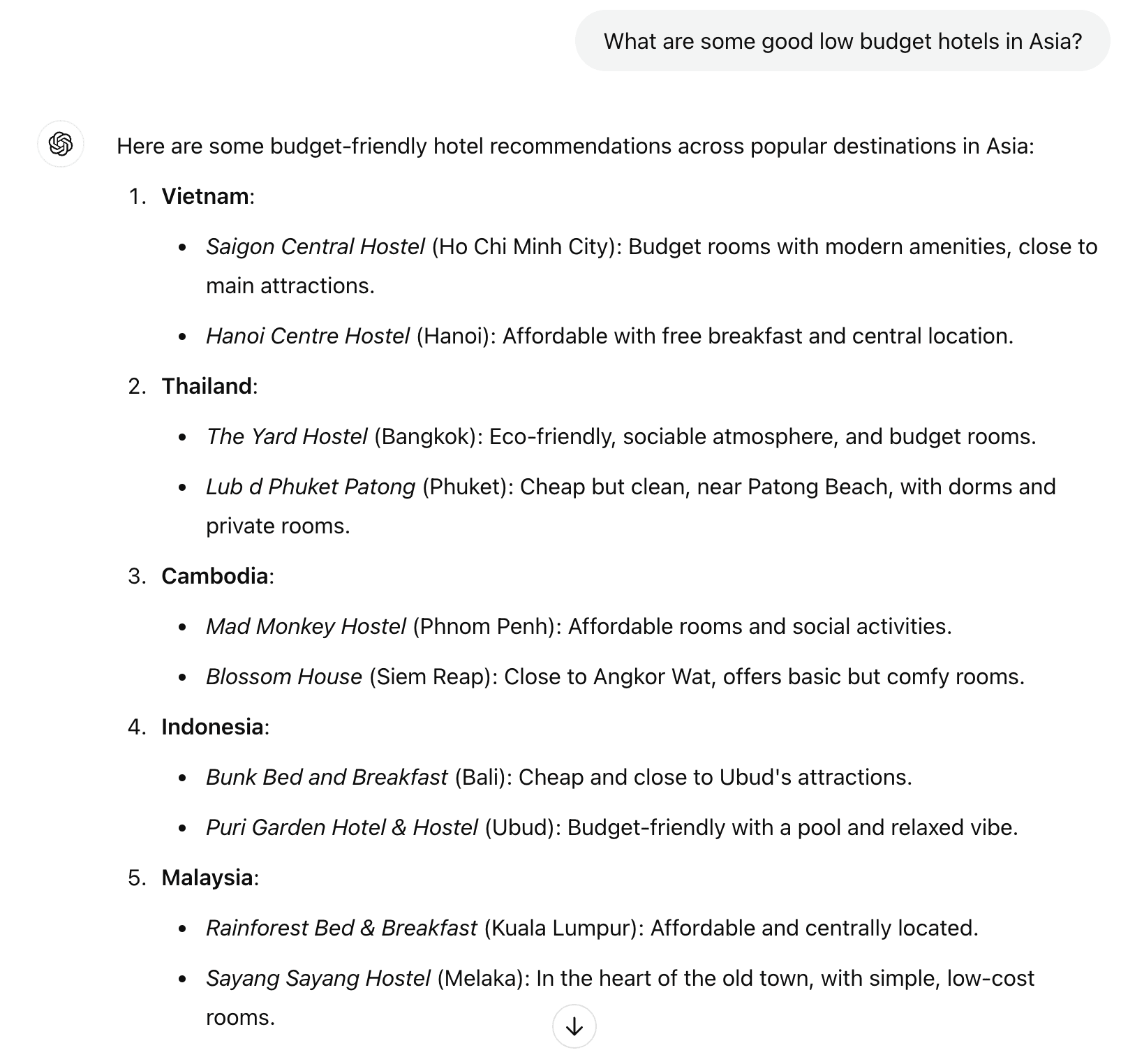
Example 2: Understanding A New Topic (Upcycling)
SEO: When using Bing to find upcycle accounts, I’m once again faced with a lot of websites with lists and how-tos - a very common format for SEO optimisation. Content, content, content baby!
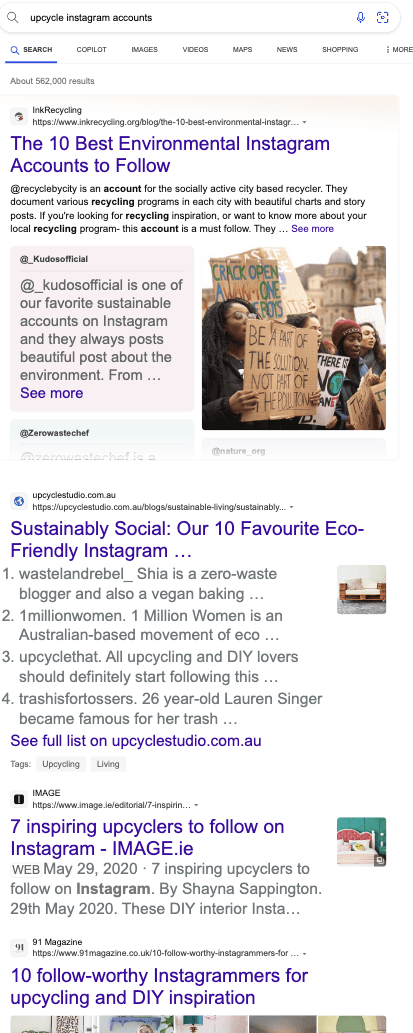
AI Search: I headed over to Instagram and used Meta AI to find some upcycle accounts for inspiration. I was instantly shown accounts with high-quality content and informational videos - all with less than 1000 followers!
AI prioritises showing me relevant and quality content based on my desire to learn.
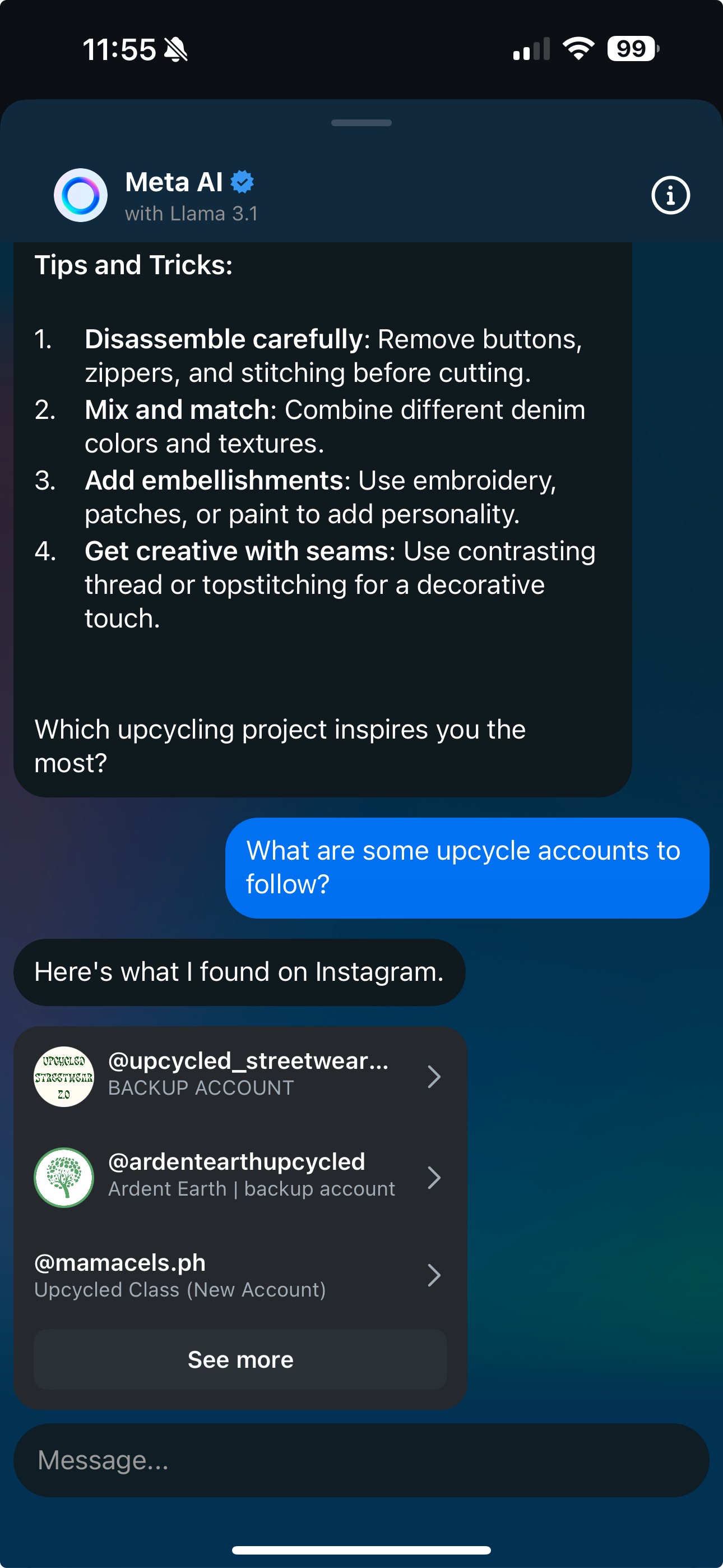
Example 3: Dinner Party Recommendations
SEO: I am presented with results from websites with high domain rankings that are optimised for search engine visibility.
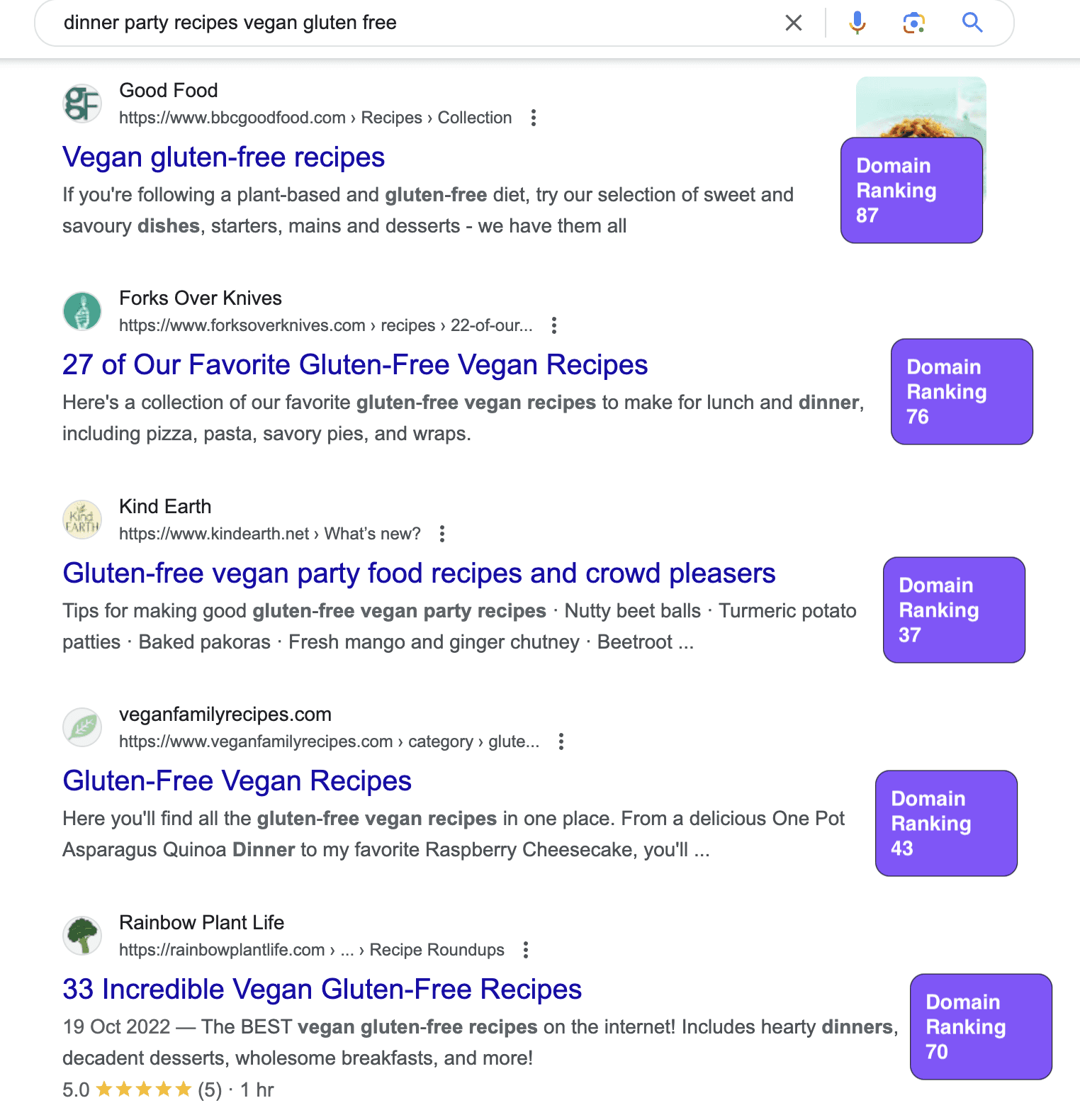
AI Search: Instead of sending me to websites immediately, Claude AI directly provides me with a relevant solution to my situation.

Impacts on your acquisition funnel
You’ll notice in the above that unless directly asked, AI search doesn’t provide product or brand recommendations.
If you’re making educational content to drive traffic, then this can impact you greatly. Previously, websites could use comprehensive content first to educate and then create leads or drive conversions in one place, but this is changing with AI Search.
AI search prioritises delivering unbiased, unsponsored answers based on the content's relevance and authority. This means customers are no longer presented with the highest bidders or best-optimised SEO pages—they are given direct, informative responses to their queries. This shift puts more knowledge and context in their hands, empowering them to make better-informed decisions when interacting with your business.
But fret not - your SEO efforts are not wasted!
AI is still looking at content to assess credibility and relevance, so the SEO content you previously created can still help how AI assesses your website.
What matters now is that you focus on creating content with the following pillars:
Focus on User Intent: Understand what users want from their queries and create content that answers their questions directly and comprehensively.
Structured Data: Implement schema markup to help AI better understand your content, making it easier for search engines to present rich, relevant results.
Conversational Tone: Create content in a natural, conversational tone that mirrors how people speak, as AI favours engaging, human-like responses.
Be Credible: Make sure to showcase your credentials and expertise to improve the likelihood of AI recommending you to potential customers.
✨ Time for a shameless plug! ✨
At Strike, we want every business, regardless of size and resources, to win in an AI-world, so we’ve developed a report that assesses your credibility and provides immediate actions to improve.
Find out more here.
Keywords
ai,ai search,seo,ai seo